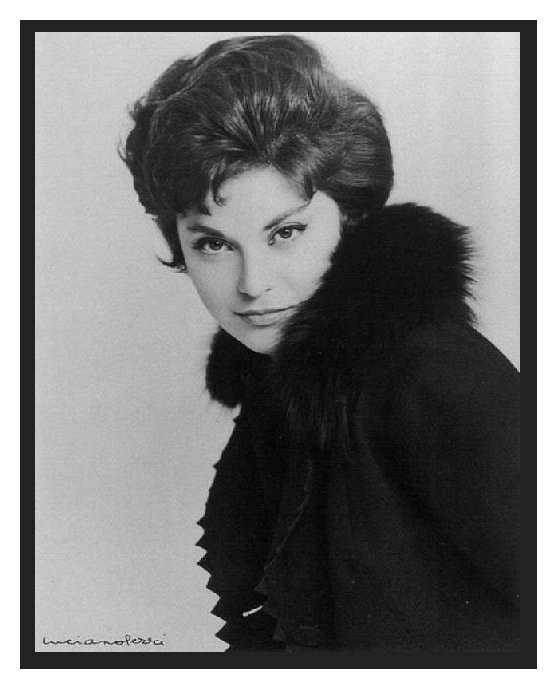

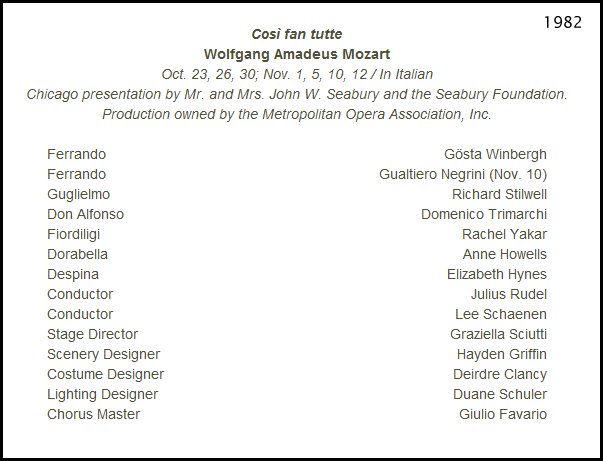 In the fall of 1982, soprano Graziella Sciutti came to
Lyric Opera of Chicago to direct — yes, direct! —
a production of Così
fan tutte by Mozart. During the run, I had the opportunity
to speak with her, and that conversation is below. The cast list
is in the box at right, and one interesting item to note is the single
performance by Gualtiero Negrini. This was one of those
sought-after make-or-break opportunities for an apprentice artist, and
he certainly made the most of it. Though not directly, it did
help lead to a strong and successful career, and he speaks of this in
my Interview with
Negrini which was done at the time. [Also see my Interviews
with Richard
Stilwell, Anne
Howells, Julius
Rudel, and Duane
Schuler who were involved in this production.]
In the fall of 1982, soprano Graziella Sciutti came to
Lyric Opera of Chicago to direct — yes, direct! —
a production of Così
fan tutte by Mozart. During the run, I had the opportunity
to speak with her, and that conversation is below. The cast list
is in the box at right, and one interesting item to note is the single
performance by Gualtiero Negrini. This was one of those
sought-after make-or-break opportunities for an apprentice artist, and
he certainly made the most of it. Though not directly, it did
help lead to a strong and successful career, and he speaks of this in
my Interview with
Negrini which was done at the time. [Also see my Interviews
with Richard
Stilwell, Anne
Howells, Julius
Rudel, and Duane
Schuler who were involved in this production.]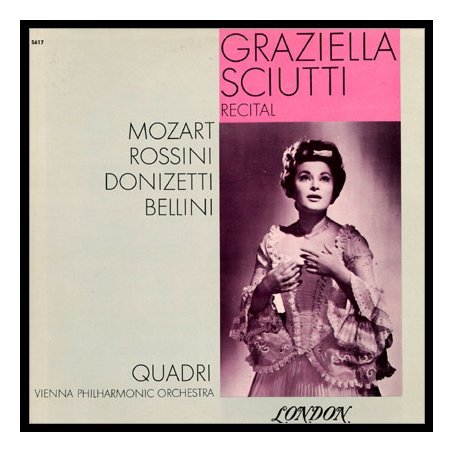 BD: Were you
pleased with these characters then? Your voice forced you into
certain roles.
BD: Were you
pleased with these characters then? Your voice forced you into
certain roles.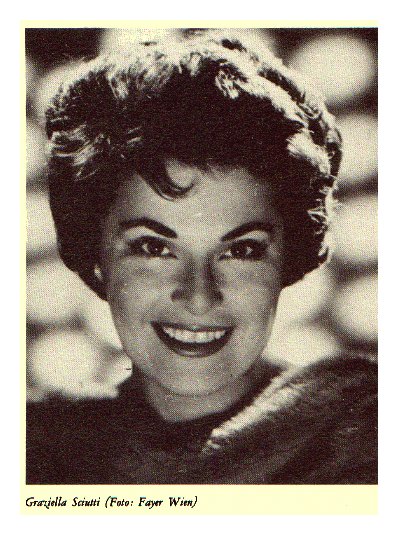 GS: Yes, some
Monteverdi. I started with very old Italian music.
GS: Yes, some
Monteverdi. I started with very old Italian music.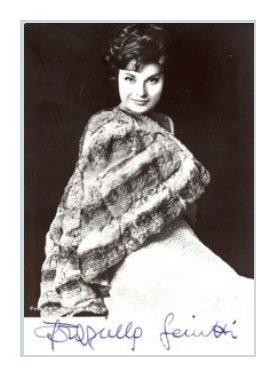 BD: Are there too
many beautiful voices?
BD: Are there too
many beautiful voices?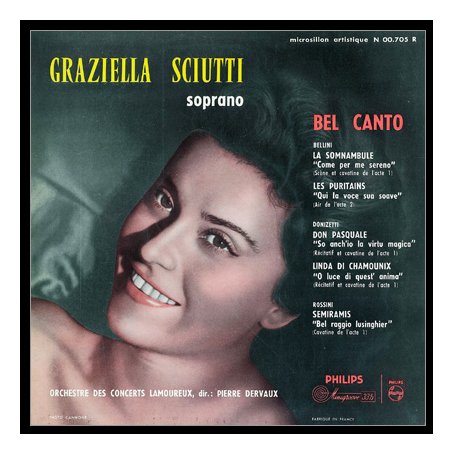 GS: There is an
amount of good fortune, chance, or whatever it is that comes into it,
but you must be all ready — not only technically
and musically, but ready to risk. Then, if you have the quality
you must go somewhere. If somebody with a beautiful voice and a
certain amount of technique doesn’t get there, there must be something
in himself that’s not ready. You have to expose yourself to the
risk and sometimes it is not always a success. It is a risk to go
away from your family, to be alone a lot, to sacrifice something of
your private life. There are many things that have to come, and
you have to decide on that. It’s not only the glamor.
GS: There is an
amount of good fortune, chance, or whatever it is that comes into it,
but you must be all ready — not only technically
and musically, but ready to risk. Then, if you have the quality
you must go somewhere. If somebody with a beautiful voice and a
certain amount of technique doesn’t get there, there must be something
in himself that’s not ready. You have to expose yourself to the
risk and sometimes it is not always a success. It is a risk to go
away from your family, to be alone a lot, to sacrifice something of
your private life. There are many things that have to come, and
you have to decide on that. It’s not only the glamor.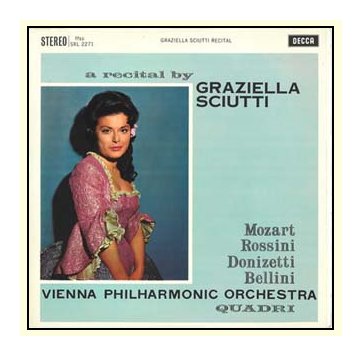 BD: They have tried
wild ideas all over the world...
BD: They have tried
wild ideas all over the world...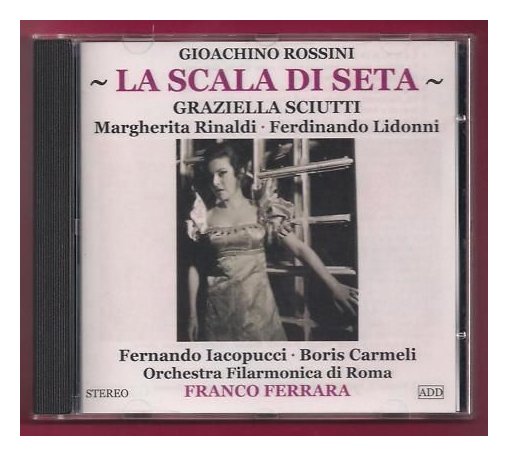 BD: So you are
continuing to sing as well as direct?
BD: So you are
continuing to sing as well as direct?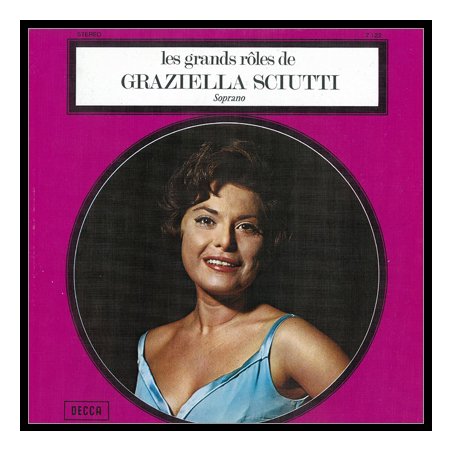 BD: Has that
happened to you?
BD: Has that
happened to you?Graziella Sciutti, 73, Soprano and Director
By ALLAN KOZINN Published in The New York Times, April 14, 2001 Graziella Sciutti, an Italian soprano and opera director whose purity of sound and deft characterizations won her admiration in Mozart, Puccini and Verdi roles, died on Monday in Geneva. She was 73 and lived in Geneva and London. The cause of death was cancer, according to The Associated Press. Ms. Sciutti was born in Turin on April 17, 1927, and studied at the Santa Cecilia Conservatory in Rome. During her student years she was a soloist in a performance of Bach's ''St. Matthew Passion,'' conducted by Herbert von Karajan. She made her formal debut as Lucy in Gian-Carlo Menotti's ''Telephone'' at Aix-en-Provence in 1951, and she remained an important presence at the festival for many years. Among the roles she sang there were three of the Mozart roles that quickly became signature pieces for her, Susanna in ''Nozze di Figaro,'' Despina in ''Così Fan Tutte'' and Zerlina in ''Don Giovanni.'' She also created the title role of Henri Sauguet's ''Caprices de Marianne'' at Aix-en-Provence in 1954, the same year she made her Glyndebourne debut as Rosina in Rossini's ''Barbiere di Siviglia.'' She sang Carolina in Cimarosa's ''Matrimonio Segreto'' in the inaugural performances of the Piccola Scala, in Milan, where she went on to sing a broad repertory that included roles in Piccini's ''Buona Figliuola,'' Donizetti's ''Don Pasquale,'' Rossini's ''Comte Ory'' and Paisiello's ''Nina Pazza per Amore.'' Ms. Sciutti made her Covent Garden debut in 1956, and her American debut, at the San Francisco Opera, in 1961. She was also a member of the Vienna State Opera roster for several years, where her most successful roles were in the Mozart operas and as Nanetta in a Luchino Visconti production of Verdi's ''Falstaff.'' And she sang at the Salzburg Festival for nearly 20 years. In 1977 Ms. Sciutti sang in and directed a production of Poulenc's ''Voix Humaine'' at Glyndebourne, preparing her way to give up the stage and become a director. She staged productions of ''Le Nozze di Figaro'' and Donizetti's ''Elisir d'Amore'' at the Canadian Opera, and in 1983 she made her New York directing debut with a highly praised staging of Puccini's ''Bohème'' at the Juilliard School. In 1984 she revised Colin Graham's production of ''Così Fan Tutte'' at the Metropolitan Opera. Her 1995 staging of ''La Bohème'' at the New York City Opera won an Emmy Award after it was broadcast as part of the ''Live From Lincoln Center'' series in 1997. Ms. Sciutti taught at the Royal College of Music in London and gave master classes at the Lyric Center of Chicago, at the Juilliard School and as part of the Merola Opera Program at the San Francisco Opera. She is survived by a daughter, Susanna. |
© 1982 Bruce Duffie
This conversation was recorded in the lower-level restaurant area of her hotel in Chicago on October 30, 1982. Portions were broadcast on WNIB (along with recordings) in 1985, 1992 and 1997. A copy of the unedited audio was placed in the Archive of Contemporary Music at Northwestern Univeristy. This transcription was made in 2014, and posted on this website at that time. My thanks to British soprano Una Barry for her help in preparing this website presentation.
To see a full list (with links) of interviews which have been transcribed and posted on this website, click here.
Award - winning broadcaster Bruce Duffie was with WNIB, Classical 97 in Chicago from 1975 until its final moment as a classical station in February of 2001. His interviews have also appeared in various magazines and journals since 1980, and he now continues his broadcast series on WNUR-FM, as well as on Contemporary Classical Internet Radio.
You are invited to visit his website for more information about his work, including selected transcripts of other interviews, plus a full list of his guests. He would also like to call your attention to the photos and information about his grandfather, who was a pioneer in the automotive field more than a century ago. You may also send him E-Mail with comments, questions and suggestions.